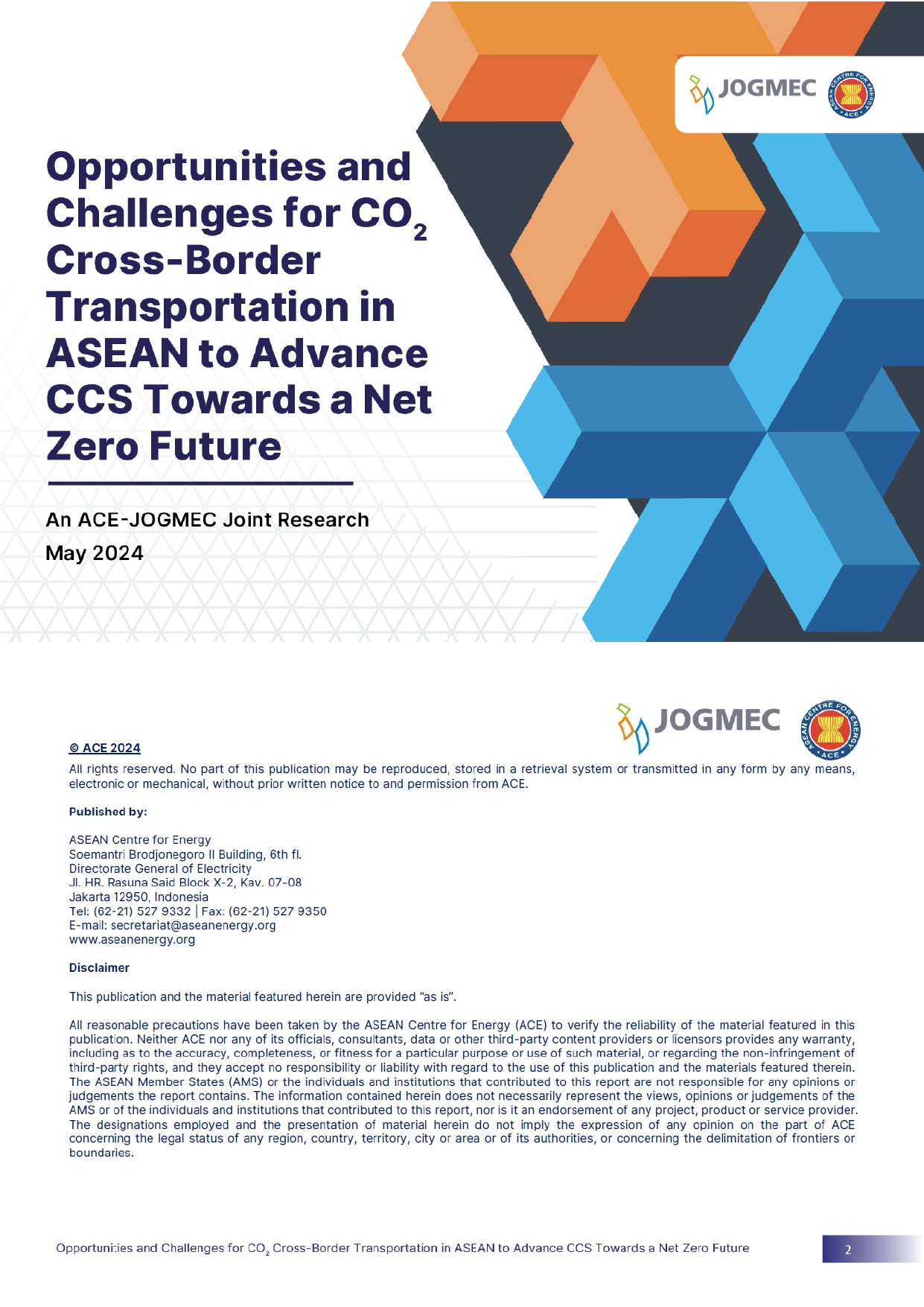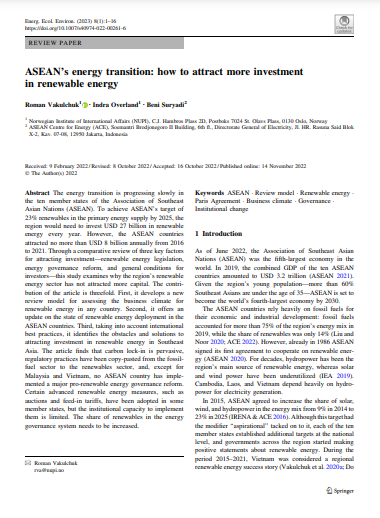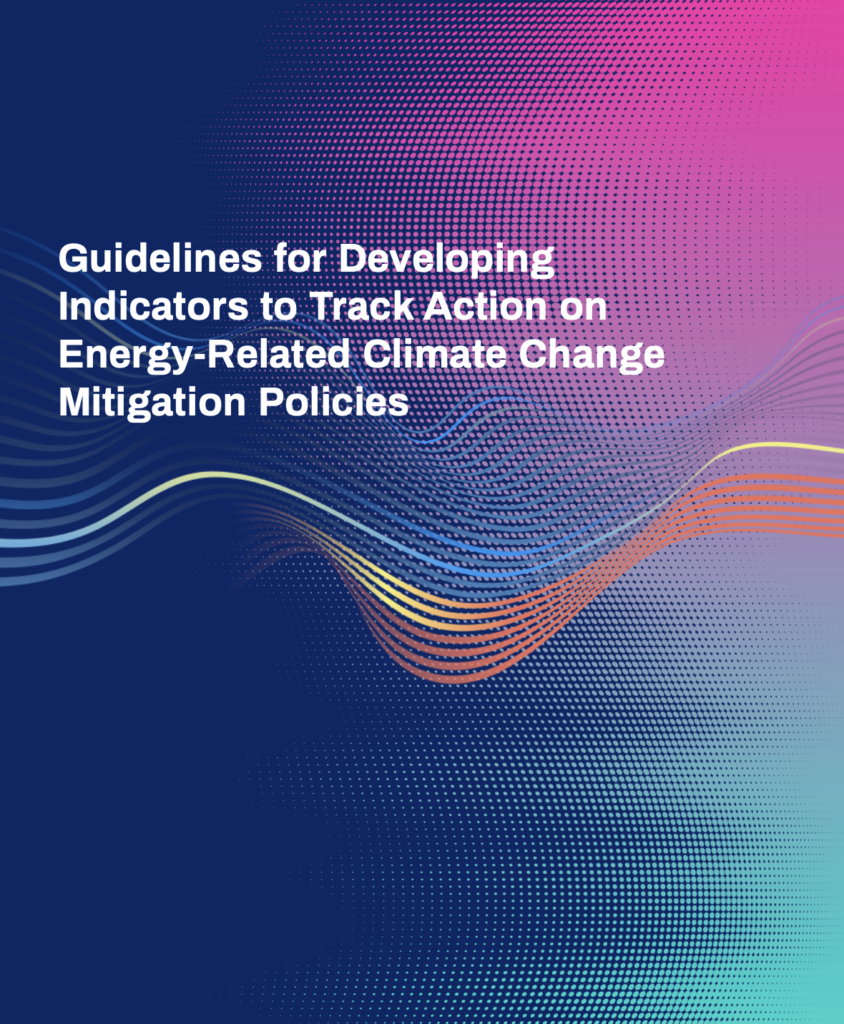Opportunities and Challenges for CO2 Cross-Border Transportation in ASEAN to Advance CCS Towards a Net Zero Future

Urgent Call for Policy Support: Mitigating Methane Emissions in ASEAN’s Energy Sector

ASEAN’s energy transition: how to attract more investment in renewable energy

Through a comparative review of three key factors, namely: renewable energy legislation, energy governance reform, and general conditions for investors; this paper identified the obstacles and solutions to attract investment in renewable energy in ASEAN region.
Guidelines for Developing Indicators to Track Action on Energy-Related Climate Change Mitigation Policies

The world’s commitment to realising the Paris Agreement has resulted in the development of climate change mitigation policies relating to several sectors, including the energy sector. Enhancing the collection and collating
of energy statistics will help to improve the formulation, planning, execution, monitoring and outcomes assessment of the policies. To be successful, policies must be based on appropriate indicators and high-quality data. This report provides guidelines for creating good indicators that can be used to track action in the energy transition. By presenting international guidance on energy statistics used globally, best practices in energy-related
climate change evidence-based policies and case studies from the ASEAN countries, this publication aims to lay out the essential knowledge needed to equip the policy makers.











